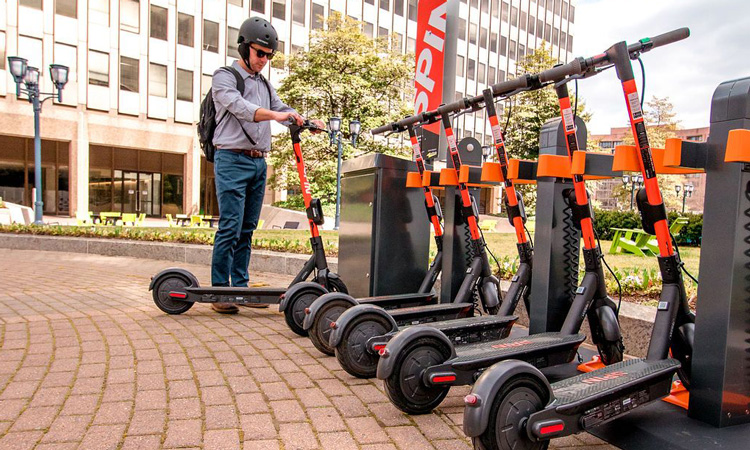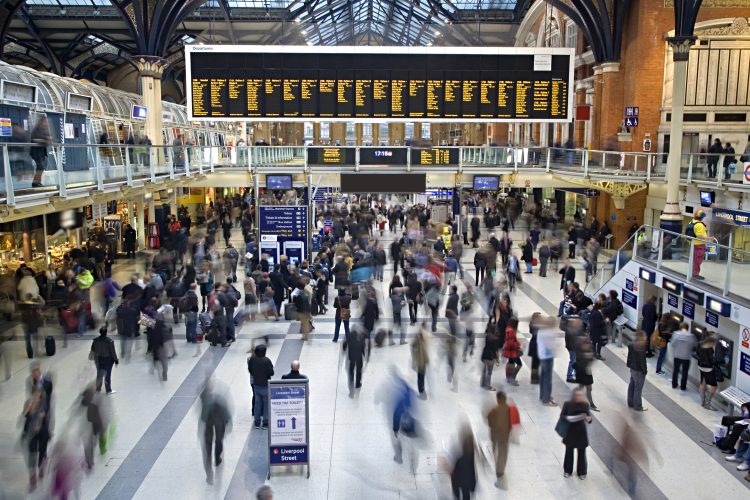Three ways e-scooters can aid economic recovery
- Like
- Digg
- Del
- Tumblr
- VKontakte
- Buffer
- Love This
- Odnoklassniki
- Meneame
- Blogger
- Amazon
- Yahoo Mail
- Gmail
- AOL
- Newsvine
- HackerNews
- Evernote
- MySpace
- Mail.ru
- Viadeo
- Line
- Comments
- Yummly
- SMS
- Viber
- Telegram
- Subscribe
- Skype
- Facebook Messenger
- Kakao
- LiveJournal
- Yammer
- Edgar
- Fintel
- Mix
- Instapaper
- Copy Link
Posted: 21 May 2021 | Steve Pyer - Spin | No comments yet
Steve Pyer examines how e-scooters can assist the economy recovery from the pandemic, with their ability to link people to transport hubs potentially crucial in securing employment for those left jobless as a result of COVID-19.


In 2020, the global pandemic forced us to change how we live – people were told to stay indoors and the usually thriving UK high streets, commuter hubs and hospitality industry were brought to a standstill.
However, as the COVID-19 vaccination rollout continues and lockdown restrictions ease, people are becoming mobile once again and the economy is on the way up for the first time in a long time.
People are now starting to go back to work, eat out, shop locally and use local amenities – reinvigorating towns and cities once again. To aid in this recovery, socially-distanced modes of transport are essential. E-scooters and e-bikes, for example, are personal, safe and convenient transport options to get people from A to B.
Shared e-scooter trials are being run in many regions throughout the UK offering communities an accessible, cost-efficient, and eco-friendly form of personal mobility. Not only do they ease the burden on public transport, but also improve air quality by reducing solo car journeys with a zero-emission alternative. For example, 62 per cent of our Milton Keynes riders say they have used an e-scooter instead of driving alone in a car journey at least once.
The towns and cities that are embracing and expanding the presence of e-scooters will reap significant benefits that bolster local economies, which include:
New employment opportunities
Bringing shared e-scooter services to towns and cities across the UK creates jobs, for example, within operations and support teams. In fact, the European Platform for Electric Mobility has identified electromobility as “crucial to Europe’s economic relaunch in the aftermath of COVID-19.” It found that there is the possibility to create over one million jobs in vehicle and rail manufacturing, charging infrastructure deployment and supply chains such as batteries by 2030.
These new jobs will provide those who have been furloughed or lost their jobs with a steady income, which in turn can also go towards helping with economic recovery via spending in local shops and restaurants. Importantly, leading e-scooter firms are hiring permanent, full benefit employees too, moving away from the gig economy model.
Micromobility solutions such as e-scooters also increase the catchment area of public transport by enabling wider access to bus, metro and train stations. A lack of access to affordable transport and living further away from city centres can be a barrier to gainful employment that e-scooters help to overcome as a low-cost travel option. Some operators also offer heavily subsidised cheaper ride rates for the unemployed and low-income workers who are part of the UK’s Job Centre Plus Travel Discount Programme – to aid more people back to employment, bolstering the economy further.


E-scooters could provide a crucial link to transport hubs such as Liverpool Street in London
Spending in local businesses
E-scooter use has also generated a significant positive economic effect on local high streets, in particular small business in the food and beverage industry.
According to researchers from Emory University’s Goizueta Business School in the US, local economies experienced a significant boost from shared e-scooter systems due to an estimated $13.8 million in additional sales across 370 food and beverage companies in four locations (Atlanta, Austin, San Francisco, and Washington DC) over six months in 2019.
Across the cities studied with e-scooter programmes, total sales in the food and beverage category increased by an estimated 0.6 per cent on average – approximately $921 in incremental spending – per available e-scooter for the food and beverage companies over the six months. In San Francisco alone, an estimated additional $2.6 million in sales was generated for the food & beverage industry due to the availability of e-scooters – something the UK can’t ignore.
More towns and cities in the UK should also consider Shared Spaces programmes such as those in San Francisco and Valencia, which provide permit-free outdoor spaces such as pavements, streets and parking spaces for businesses to use for seating or retail. E-scooters are the perfect transport to get people to these spaces. Valencia saw 60 per cent more rides from Thursday to Sunday in Shared Space locations – injecting money in local businesses.
This can be done on a large or small scale, such as our parklet project in Lewisham, which transformed nine parking spaces into an inviting outdoor seating space for people to safely socially distance while enjoying food and drink from local businesses.
Supporting tourism
E-scooters can also play a big role in supporting tourism across the UK. They are a great way for tourists and locals alike to see more, do more and spend more in towns and cities either on their own or as part of guided tours – giving a substantial boost to local economies and communities.
Many tourists already have electric scooter accounts and apps that can be used anywhere that scooters are operating. As such, they will use services that they are familiar with and can easily book and pay for.
During 2019, the UK welcomed over 40 million tourists. While this figure has reduced significantly as a result of the COVID-19 pandemic, as the vaccine rollout continues the UK expects that tourism – both from abroad and those choosing to holiday in the UK – will begin to grow again. E-scooters will be a fun, greener way for tourists to get around and experience new towns and cities.
Moving forward
It’s clear that recovery will take time and a concerted, all-hands-on-deck effort. The past year has been challenging in an unprecedented way.
However, as we begin to move forward, with cautious optimism about the future, micromobility will play an important role in reviving parts of local economies that really suffered – providing increasing access to businesses as they reopen, while ensuring cities and their transportation systems are resilient in times of crisis.
Biography
Steve Pyer is Spin’s UK Country Manager, bringing over 15 years of experience within the micromobility sector. He joined Spin in September of this year and is responsible for managing Spin’s operations and stakeholder relationships within the UK. Prior to Spin, Steve was General Manager at Madrid based MaaS company, Ride On.
Related topics
Business Models, Multimodality, On-Demand Transport, Passenger Accessibility, Passenger Experience, Public Transport, Transport Governance & Policy
Related modes
Bikes & Scooters
Related cities
UK
Related organisations
Emroy University, Spin







